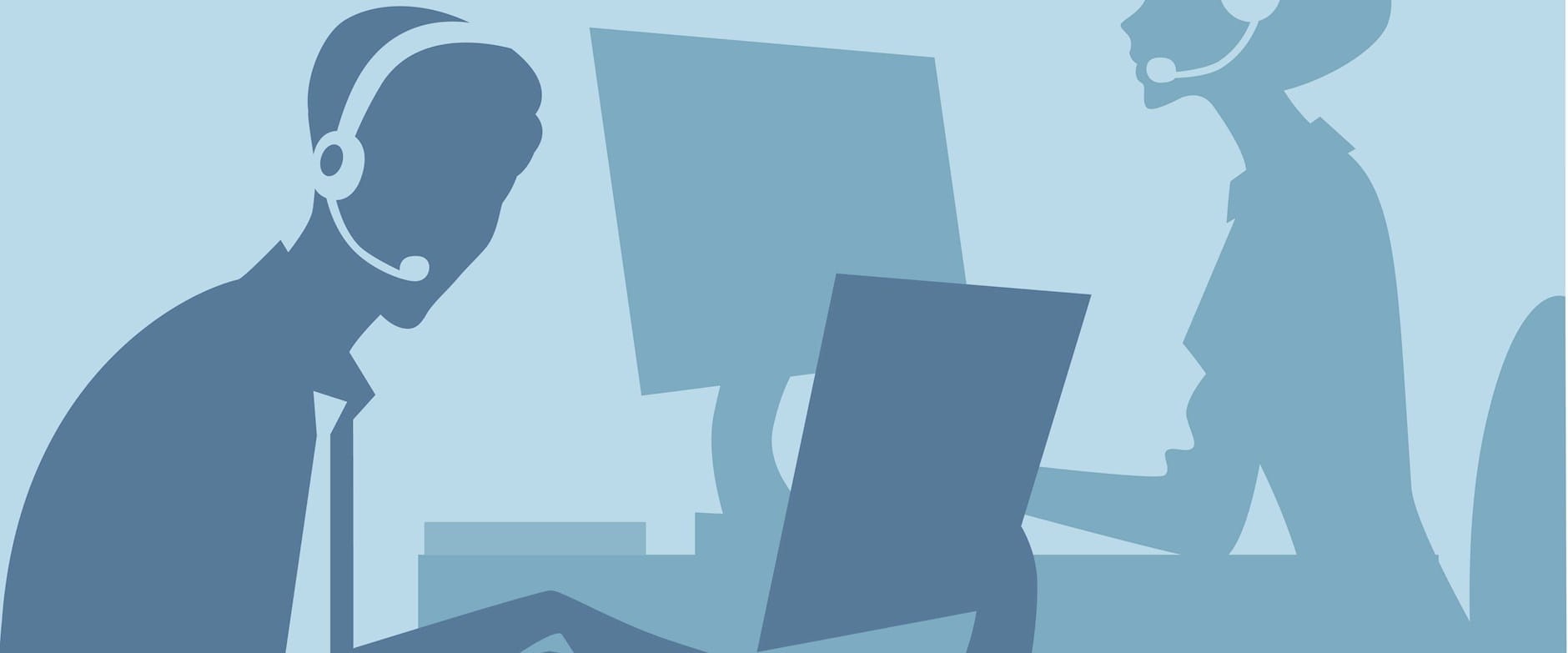Narrator: During the 2020 COVID shutdown, many laid-off Americans rushed to apply for unemployment insurance to hold them over till their companies were able to reopen. But there were reports of Americans finding it difficult to get assistance with their applications from their local unemployment offices. Chicago Booth’s Devin Pope and his coauthors began making phone calls to see how true these reports were.
Devin G. Pope: We were wondering, OK, well, how actually different are the states in terms of how they go about helping their citizens with something like an unemployment insurance application? So we hired a little army of University of Chicago undergrads and had them start making phone calls. And so they would call every state in the country and they would call either the unemployment-insurance office or the Medicaid office or the food stamps office, the SNAP office, and they would ask them . . . They would try to get a live representative on the phone to ask them a question. But our goal was just to see if they could get a live representative on the phone. That’s the measure we were interested to see how that differed across states.
Narrator: The research assistants that made these phone calls saw that some states were much more responsive than others. For states such as New Hampshire and Wisconsin, they were able to get a live representative about 80 percent of the time. New Jersey and Georgia, on the other hand, had the lowest response rate, with the assistants receiving live help only 20 percent of the time.
Devin G. Pope: We had a ranking of the states in terms of how well they performed on at least this very one specific customer-service-type measurement. And of course there’s other things. Maybe New Jersey and Georgia, who didn’t do very well in our study, are doing really great when it comes to actually providing the cards or something for someone who’s going to be using food stamps. But they, at least in terms of getting a live representative on the phone, they didn’t do very well.
Narrator: The researchers are hesitant to try to explain why some states were better than others.
Devin G. Pope: It could just be a matter of which states happened to hire someone who was really good at organizing and being efficient and getting things running well. But one thing that we did find is that states that did poorly in one dimension, for example, unemployment insurance, helping people with unemployment insurance, also did poorly in helping people with Medicaid or helping people with SNAP or helping people that had questions about their income taxes. And so it looks like there’s just some states that are better at this overall than others. It’s not just like someone had a bad person hired to run their unemployment-insurance office. The states are a little bit dysfunctional across multiple different categories. I think that’s an interesting outcome of our study suggesting that it’s something higher up rather than something that’s just random that happens to be at the office level.
Narrator: Whatever explains the findings, the paper seems to be catching some unexpected attention.
Devin G. Pope: One thing that’s kinda cool is we’ve had a couple of different states call us and ask us, well, tell us exactly what time you called. We want to figure out why is it that we weren’t answering the phone. We love that. That shows that states actually thought about it and cared and are trying to improve.
Narrator: Perhaps the publication of the rankings will prod states to do better—just as review services such as Yelp encourage restaurants to maintain a high standard of quality. The only difference is that it’s easy to go to a different restaurant with better reviews. State governments may be less concerned about competition.
Devin G. Pope: But again, that’s the hope, that by publishing studies like this, that hold states’ feet to the fire a little bit that perhaps they’ll feel the pressure to try to do better.
